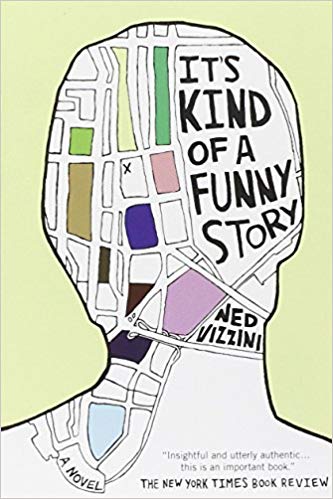A new young adult novel adaptation, “After,” hits theaters this weekend, and for once it’s not based on a book by John Green or Nicholas Sparks. But instead of needlessly complaining about adaptations that weren’t as good as the book, we’re just going to rant about some of the underrated and overrated novels of the YA genre. This is Unpopular Opinions: Young Adult Novels.
“Gone” by Michael Grant
This Michael Grant series feels like a sci-fi version of “Lord of the Flies” with more action and angst and less nuance, but an all-around captivating story. The series, set in the fictional town of Perdido Beach, begins when everyone in the town aged 15 and older mysteriously vanishes and a force field encapsulates the area. While the remaining people start to rebuild their community, certain kids develop superpowers and soon, powerful factions develop and vie for control over Perdido Beach. The “Gone” series is a thrilling read that feels much more innovative among the onslaught of generic action YA novels like “The Hunger Games,” “Divergent” and “Legend.” Unlike those, Grant is able to build a captivating mystery on top of great world-building and his slow-burn approach to revealing details is wonderfully executed, making you want to pick up the next book the moment you finish the first. Set in modern times, the novel makes it easy to wonder what you would do with superpowers that could help you take over a town. Grant’s development of the main characters, Sam Temple and Caine Soren, is well-executed and gives them honest coming-of-age arcs where they tackle sex, puberty and leadership amid superpowers and force fields. — Guru
“Hatchet” by Gary Paulsen
A novel that has never felt more relevant than today, with plane crashes making the news every few months, “Hatchet” follows 13-year-old Brian Robeson as he survives a plane crash only to find himself stuck in the wilderness with nothing but a hatchet. Thousands of boys take part in the Boy Scouts just for a taste of the adventure that Robeson experiences in the novel. “Hatchet” has all the adventure of “Robinson Crusoe” but is underpinned by the modern affliction of parental divorce. By tackling parental separation and featuring a yearning for adventure, the book contains two phenomena that define many a childhood. Today, where a few months without a Playstation amount to an emergency of immense proportions, it may perhaps read as a horror story. “Hatchet” can be read in a day — short, engrossing and intense from start to finish. In no way is the novel a whimsical tale of comfortable wilderness adventure; there are no treehouses or animal companions. Unlike many of the young adult survival novels available, this one is gratuitously detailed. One gets the sense that Gary Paulsen has spent a Thoureau-ian amount of time in the woods, as the details of Brian’s life are harsh, precise and graphic. — Dante
“It’s Kind of a Funny Story” by Ned Vizzini
This 2006 novel was widely celebrated upon its release for its matter-of-fact depiction of mental illness, and rightly so. But by the time I read it, a few years later, when I was myself a teenager dealing with mental illness, I found it to be lacking. The book follows Craig, a Brooklyn teen struggling with depression and school-related anxiety who checks himself into a mental health facility. Vizzini was very open about his own struggles with depression; he died by suicide in 2013 at the age of 32. When the novel was published in the mid-aughts, the national dialogue around mental illness was at a very different place than it is today, and I’m sure that at the time, Vizzini’s book was a positive contribution to the conversation. As a novel, “It’s Kind of a Funny Story” is fine — it can be warm and thoughtful, even if not a lot actually happens and the characterizations feel a bit flat at times. But the arc of the storyline traces a too neat line between Craig’s stress over school, his illness, his treatment and his recovery; while the ending focuses more on Craig’s hope for his future rather than claiming that he’s “cured,” it still feels too pat. Mental illness doesn’t usually have an intelligible cause, and psychiatric treatment is out of many Americans’ reach financially. Making this book out to be more than it actually is doesn’t do anything to help us move forward. — Alex
Email the Arts Desk at [email protected].


























































































































































